INDUSTRIAL CONSULTING
Providing Advanced Industrial Projects and Opportunities for Investors
We prepare well-studied investment opportunities for industrial projects, including small, medium, and micro enterprises. These projects are analyzed from strategic perspectives, such as the availability of raw materials in the region, access to marketing channels for production, proximity of consumption areas to production sites, and the availability of specialized technology.
Additionally, we provide information about the markets for these projects, along with general technical and economic insights, enabling investors to reach a stage where they can decide whether to pursue more in-depth and detailed studies before making an investment decision.
These opportunities are often studied and provided based on the orientations of loan-granting entities or investment partners, regardless of whether these entities are foreign, technology owners, market owners, or general investment institutions.


Feasibility Study for New Industrial Projects
We prepare comprehensive technical and economic feasibility studies for industrial projects, including small, medium, and micro enterprises, with a high level of professionalism and specialization. Our studies adhere to international standards and meet the requirements of financing entities, serving as a reliable reference for project implementation.
The economic feasibility study includes all essential project information, with a strong focus on the technical feasibility study, which is the most critical part of an industrial project’s economic assessment. Unipro goes beyond merely obtaining price quotations and technical specifications; we actively seek out new technologies for adoption, work on their transfer and localization, and explore innovative ideas and concepts for the required industry and project. We conduct a precise technical analysis to derive accurate, reliable results that determine the project's feasibility.


Comprehensive Industrial Project Development
It is a comprehensive service for the integrated development of industrial projects by providing both consulting and execution services. This includes everything from identifying industrial investment opportunities that align with market needs to conducting economic feasibility studies and preliminary engineering, all the way to supervising project implementation up to trial operations or delivering it as a turnkey project.
Therefore, the company has designed this integrated and interconnected package of services under a single program: the Industrial Project Development Program.


Technical Studies, Technology Assessment, and Production Methods
UNIBRO studies the globally available technologies for the project, evaluates them, selects the most suitable technology, and prepares technical studies in preparation for its transfer and localization.


Industrial Training (Technical & Managerial)
Training holds great importance in our modern era, where technological and scientific advancements are rapidly evolving, making it essential to continuously acquire new skills and knowledge. A prime example of this is the rapid development in computing, where staying updated is necessary almost every week. Similarly, in the fields of management and industry, globalization has reshaped management concepts, and technological progress compels us to adopt advanced equipment—necessitating proper training to operate it efficiently.
However, training is not solely about acquiring new scientific and technical knowledge. One of its key purposes is to strengthen weaknesses, whether in individuals or within organizations, that may hinder performance. These weaknesses may stem from inadequate education, a gap between academic knowledge and job requirements, or career shifts. Many professionals, when starting their careers, realize they lack essential skills such as writing business reports, organizing meetings, understanding labor laws, or problem analysis techniques. Unfortunately, some managers dismiss new graduates for their lack of expertise instead of addressing these gaps constructively. A more productive and respectful approach is to invest in training, as it can uncover hidden potential, improve performance, and foster loyalty to the organization that provides learning opportunities, as well as appreciation for the leaders who support their development.
UNIBRO offers specialized training programs as one of its key services, particularly tailored for investors in new industries based on scientific studies. These training programs focus on the following key personnel:
Investors and managers – to equip them with the skills necessary for successfully leading investments.
Technical and production staff – to train them on production processes, adherence to specifications, and maintenance operations.
Industrial administrative staff – to enhance their efficiency in managing industrial operations.


Production Cost Analysis & Cost Reduction Strategies
Organizations face numerous internal and external environmental changes that have significantly impacted cost accounting systems and their informational outputs. This necessitates the continuous development of these systems and the adoption of modern approaches, methods, and procedures in both measurement and analysis. These advancements ensure that cost accounting systems can effectively meet management’s need for accurate, diverse, detailed, and timely information, which is crucial for managing the cost strategies adopted by organizations.
Moreover, a review of accounting literature reveals various studies and opinions that have criticized the role and effectiveness of traditional cost analysis methods. These critiques highlight the limitations of conventional approaches in achieving a strategic dimension in cost analysis, fostering continuous improvement in operational activities, reducing costs, and attaining cost leadership while maintaining an appropriate level of product quality.
Cost reduction is one of the most critical and effective strategies organizations adopt to gain competitive advantages in today’s highly competitive business environment. Achieving cost reduction requires an integrated cost management framework, necessitating a reassessment of traditional cost reduction methods. Organizations must adopt modern approaches, tools, and techniques that provide a comprehensive perspective on cost management. One of the most significant approaches is strategic cost analysis, which aims to integrate cost systems with strategic management. This approach focuses not only on cost control but also on analyzing, improving, and reducing costs while aligning directly with the organization's overall strategy.


Solving Existing Factory Issues
Unibro offers innovative and cutting-edge solutions for all types of factories in the Arab Republic of Egypt and other countries, whether in the public, private, or investment sectors, across all stages of manufacturing. We provide advanced specialized technical solutions to address complex or recurring technical challenges through a team of experts and established partnerships with leading research centers and specialized technical consultancies across various fields.


Providing Specialized Human Resources for Our Partners
Looking toward the future in the world of organizations and institutions necessitates the use of strategic human resource planning as a tool for forecasting and shaping the future. It serves as a cornerstone of the management system, ensuring a successful organizational trajectory and acting as a key indicator of progress.
With this vision in mind, Unibro has introduced a unique and specialized service—providing trained and specialized industrial, technical, and administrative personnel to meet the workforce needs of our clients in their factories and projects.


Study of Quality Requirements, Product Specifications, and Standards
Quality refers to achieving a high level of excellence and value, serving as a reliable benchmark that distinguishes one accomplishment from others in the same market. It entails producing defect-free products by adhering to verifiable and measurable standards, ensuring customer satisfaction. Quality is not limited to products alone; it extends to production processes, workforce, inspection procedures, storage, supply chain management, and post-delivery services—ultimately defining the overall product quality.
The quality management department consists of several key divisions, including Quality Planning, Quality Assurance, Quality Control, and Continuous Improvement. Unibro provides this service by assessing the quality requirements and standards for various projects, implementing quality control measures, total quality management (TQM), and practical quality control techniques through the following approach:
1. Evaluating Quality Control Standards in the Company
Comprehensive monitoring of product components and materials used in production.
Tracking changes in global product specifications.
Overseeing product certification, including production date, storage temperature, and expiration date.
Ensuring compliance with quality control regulations in the country of production.
2. Assessing Total Quality Management (TQM), which relies on key elements such as:
Defining product specifications based on customer preferences, design standards, development, and research.
Controlling the quality of raw materials.
Ensuring product quality during the manufacturing process.
Verifying product quality in its final form, including packaging, storage, transportation, and calibration of measuring/testing equipment.
Maintaining product quality after sale.
Managing quality across all administrative aspects to enhance and improve product standards.
3. Implementing Practical Quality Control Techniques
Ensuring quality through process control measures.
Utilizing frequency distribution charts, control charts for product variables, and attribute control charts.
Guaranteeing final product quality through inspection and testing.
Applying Total Quality Management (TQM) principles to maintain excellence.
With these comprehensive solutions, Unibro helps businesses establish and maintain high-quality standards across all operational levels, ensuring compliance, efficiency, and customer satisfaction.


Providing Marketing Solutions and Tools
The Importance of Marketing
Marketing is just as crucial for industrial enterprises as production itself. Without marketing and sales, production holds no real value. In many cases, marketing costs can account for up to 50% of a product’s selling price, making it nearly as costly as production and equally important.
Several external factors influence an organization's market presence, such as changing consumer preferences, varying market dynamics, and shifts in competitive landscapes, all of which impact product sales.
Marketing plays a key role in society by ensuring the availability of goods and services, improving individuals' quality of life. It also generates employment opportunities, requiring a diverse workforce across multiple departments beyond just marketing, including production, design, and management.
Additionally, marketing enables companies to:
Compete effectively against foreign and multinational corporations in local markets.
Expand into international markets by identifying new marketing opportunities abroad.
Key Marketing Objectives:
Maximizing sales volume in target markets.
Achieving a specific profit margin from product sales.
Ensuring the highest possible level of customer satisfaction.
Maintaining and enhancing the organization's competitive position.
Identifying and fulfilling consumer needs for goods and services.
Unibro's Integrated Marketing Solutions
Unibro offers comprehensive marketing solutions as a key service for its clients. These include:
Market research to identify business opportunities.
Marketing tools and strategies to assist businesses in reaching their target audience.
Access to Unibro’s extensive database, enabling clients to market their products and services effectively.
With these services, Unibro provides peace of mind to its clients by supporting them beyond production, ensuring their success in marketing and selling their products.
Unibro Middle East conducts in-depth market studies for projects, products, and services using advanced research methodologies. Leveraging information technology and extensive databases, the company analyzes market data both quantitatively and qualitatively, depending on the nature of the study and the required insights.
Unibro's Market Research Methods:
Field research using surveys and questionnaires, ensuring data accuracy.
Statistical analysis techniques, applying globally recognized methods for qualitative and quantitative market analysis.
By employing cutting-edge market research and data analysis tools, Unibro helps businesses make informed decisions, optimize marketing strategies, and achieve sustainable growth.




